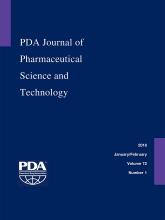Abstract
INFARMED, the Portuguese national health authority, alerts the general public and health care professionals about quality or safety issues detected in health products. The present study analyses recalls of substandard medicines in Portugal between 2005 and 2015. All 338 alerts for medicine recalls were analysed, which represents a total of 378 drugs withdrawn. Despite the fact that the total number of medicine alerts has increased during the past decade, the number of actual medicine recalls remained relatively constant. The number of batches affected in each recall varies from only one to several batches. In addition, 294 of the alerts are related to voluntary recalls, that is, those initiated by the marketing authorisation holder, whereas only 40 were mandatory recalls. There are marketing authorisation holders that have had several medicine recalls over the period studied. The main cause of product recall was the pharmaceutical dosage form, followed by packaging problems. Forty-two percent of the withdrawn medicines are from solid oral forms, a value slightly higher than that obtained for the injectables group. Finally, substandard medicines have been accessible in the Portuguese market for a period that varied between one month and over four years. The data seem to show that the number of substandard medicines in Portugal has not been increasing. However, this may be due to a variety of causes, that is, better performance of the industry, non-detection of these cases, and so on.
LAY ABSTRACT: INFARMED, the Portuguese national health authority, alerts the general public and health care professionals about quality or safety issues detected in health products. The present study analyses market recalls of substandard medicines in Portugal between 2005 and 2015. All 338 alerts for medicine recalls were analysed, which represents a total of 378 drugs withdrawn. Despite the fact that the total number of medicine alerts has increased during the past decade, the number of actual medicine recalls has remained relatively constant. In addition, 294 of the alerts are related to voluntary recalls, that is, initiated by the marketing authorisation holder, whereas only 40 were mandatory recalls. There are marketing authorisation holders that have had several medicine recalls over the period studied. It was also found that substandard medicines have been accessible in the Portuguese market for a period that varied between 1 month and over 4 years. The data seem to show that the number of substandard medicines in Portugal has not been increasing. However, this may be due to a variety of causes, that is, better performance of the industry, non-detection of these cases, and so on.
- © PDA, Inc. 2018
PDA members receive access to all articles published in the current year and previous volume year. Institutional subscribers received access to all content. Log in below to receive access to this article if you are either of these.
If you are neither or you are a PDA member trying to access an article outside of your membership license, then you must purchase access to this article (below). If you do not have a username or password for JPST, you will be required to create an account prior to purchasing.
Full issue PDFs are for PDA members only.
Note to pda.org users
The PDA and PDA bookstore websites (www.pda.org and www.pda.org/bookstore) are separate websites from the PDA JPST website. When you first join PDA, your initial UserID and Password are sent to HighWirePress to create your PDA JPST account. Subsequent UserrID and Password changes required at the PDA websites will not pass on to PDA JPST and vice versa. If you forget your PDA JPST UserID and/or Password, you can request help to retrieve UserID and reset Password below.






